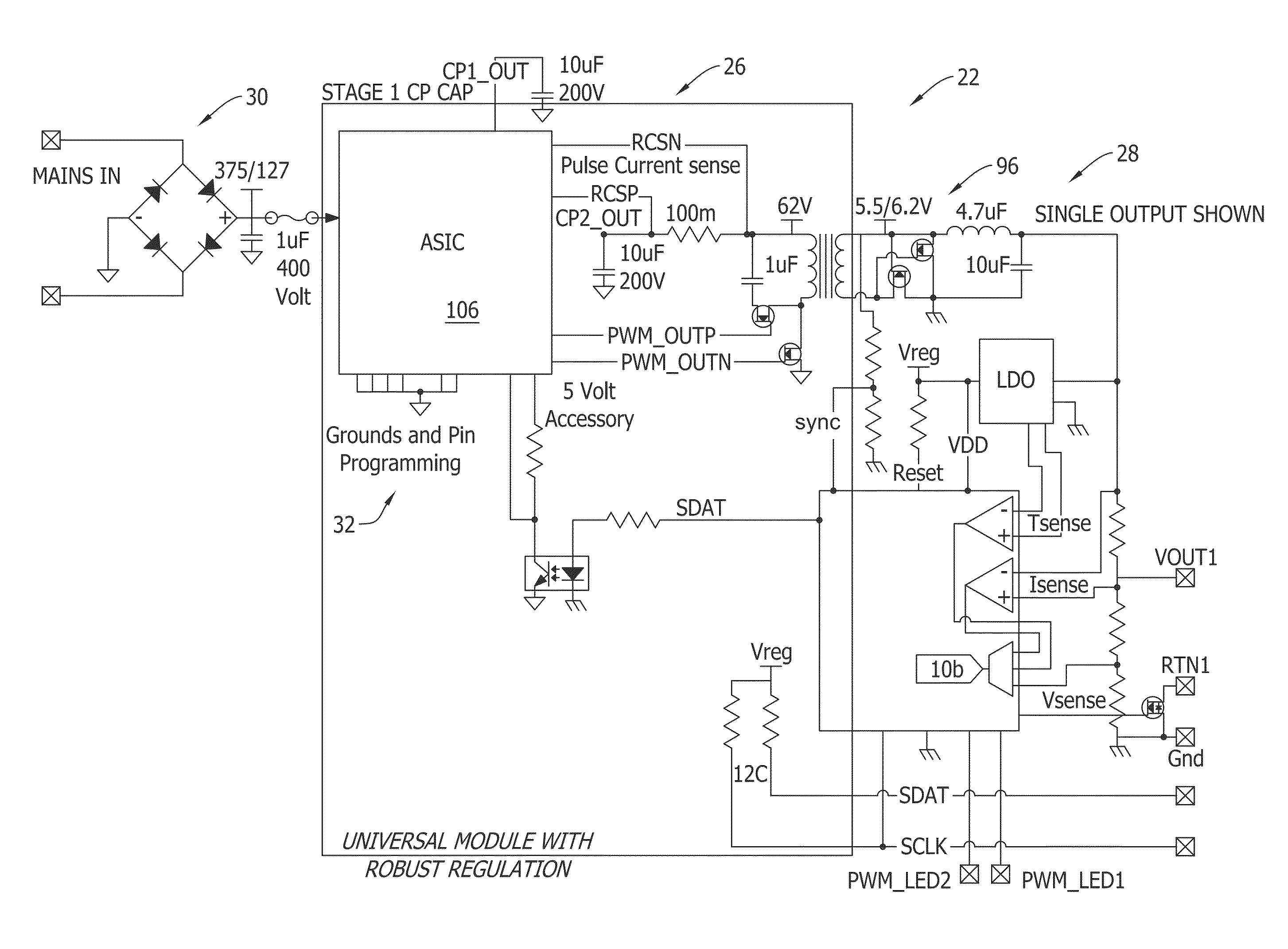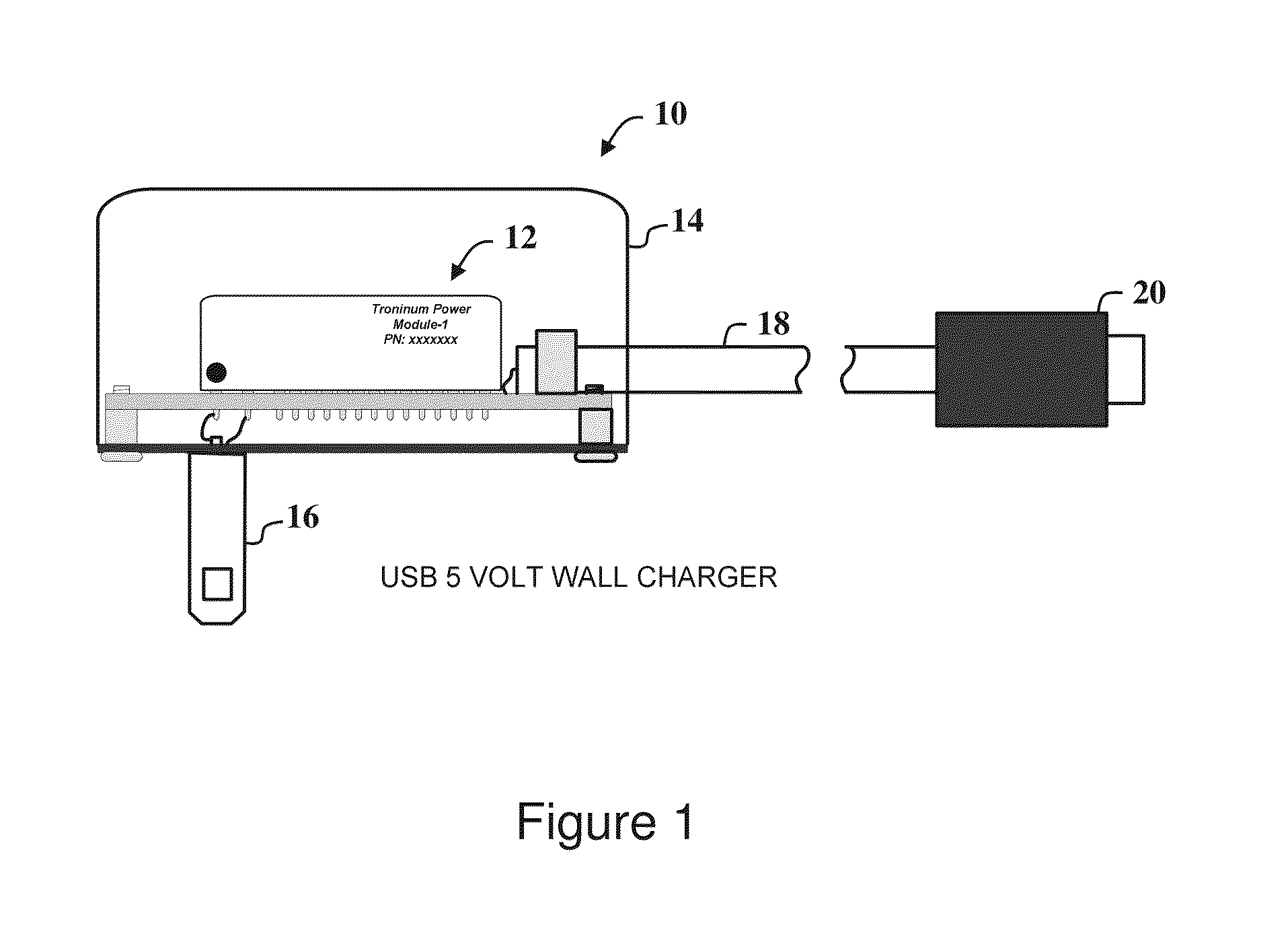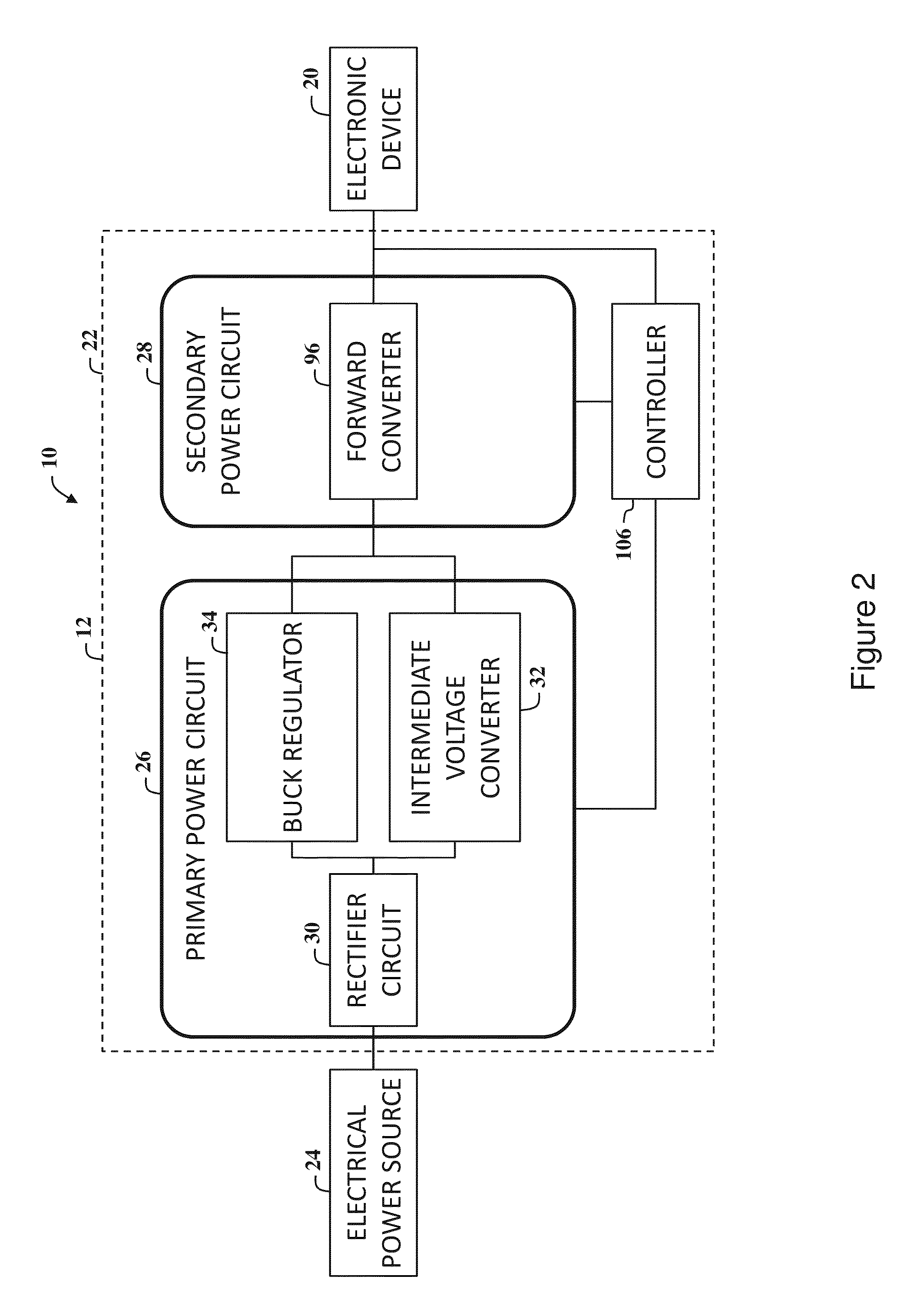Electrical circuit for delivering power to consumer electronic devices
a technology of electric circuits and electronic devices, applied in the direction of instruments, process and machine control, code conversion, etc., can solve the problems of increasing the energy crisis worldwide, wasting electricity, and not accomplishing anything, so as to reduce conduction and switching losses, and reduce resistance.
- Summary
- Abstract
- Description
- Claims
- Application Information
AI Technical Summary
Benefits of technology
Problems solved by technology
Method used
Image
Examples
Embodiment Construction
[0098]With reference to the drawings and in operation, the present invention overcomes at least some of the disadvantages of known power delivery systems by providing a power module that includes a power circuit that provides DC voltage output power to consumer electronic devices from an AC mains supply (typically 120 VAC (US) to 240 VAC[EU / Asia]). The power circuit is configured to provide electrical power to charge electronic storage devices and / or power consumer electronic products including, but not limited to, a cell phone, a smartphone, a tablet computer, a laptop, and / or any suitable electronic device that may benefit from this invention due to extremely high efficiencies and very low stand-by power requirements.
[0099]In an embodiment of the present invention, the power circuit includes a plurality of voltage reduction circuit cells, e.g., stages, that are configured to receive an input power signal and deliver an output power signal at a desired voltage level. In one embodim...
PUM
 Login to View More
Login to View More Abstract
Description
Claims
Application Information
 Login to View More
Login to View More - R&D
- Intellectual Property
- Life Sciences
- Materials
- Tech Scout
- Unparalleled Data Quality
- Higher Quality Content
- 60% Fewer Hallucinations
Browse by: Latest US Patents, China's latest patents, Technical Efficacy Thesaurus, Application Domain, Technology Topic, Popular Technical Reports.
© 2025 PatSnap. All rights reserved.Legal|Privacy policy|Modern Slavery Act Transparency Statement|Sitemap|About US| Contact US: help@patsnap.com



